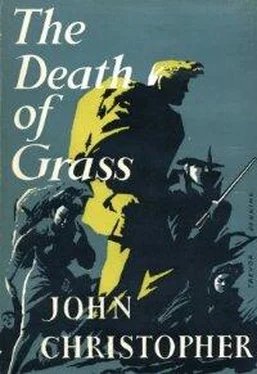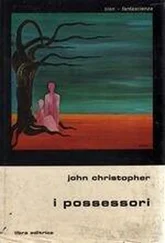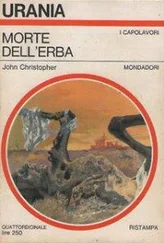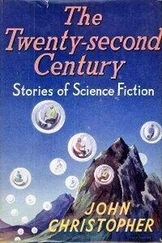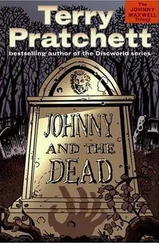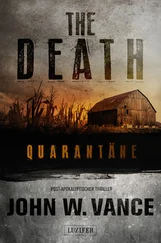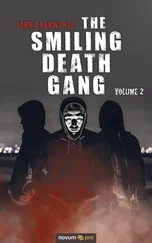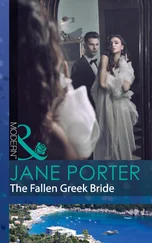“Roger!”
Roger said in a soft voice: “Yes, Ann.”
Ann released Mary gently, and got to her feet. She clenched her teeth against pain, and John went to help her. He still had the automatic strapped on his shoulder. He tried to stop her when she reached for it, but she pulled it from him.
Two of the men were dead. The third was the one who had been wounded in the thigh. Ann limped over to stand beside him. He looked up at her, and John saw behind the twisted tormented fear of his face the beginning of hope.
He said: “I’m sorry, Missus. I’m sorry.”
He spoke in a thick Yorkshire accent. There had been a driver, John remembered, in his old platoon in North Africa who had had that sort of voice, a cheerful fat little fellow who had been blown up just outside Bizerta {95} 95 Bizerta: port in Libya, scene of much fighting between the British and the Italian/German forces in World War II.
.
Ann pointed the rifle. The man cried:
“No, Missus, no! I’ve got kids…”
Ann’s voice was flat. “This is not because of me,” she said. “It’s because of my daughter. When you were… I swore to myself that I would kill you if I got the chance.”
“No! You can’t It’s murder!”
She found some difficulty in releasing the safety catch. He stared up at her, incredulously, while she did so, and was still staring when the bullets began tearing through his body. He shrieked once or twice, and then was quiet. She went on firing until the magazine was exhausted. There was comparative silence after that, broken only by Mary’s sobbing.
Pirrie said calmly: “That was very well done, Mrs Custance. Now you had better rest again, until we can get the car out of here.”
Roger said: “I’ll move her.”
He got in the Vauxhall, and reversed sharply. A back wheel went over the body of one of the men. He drove the car through the gap, and out on to the road. He called:
“Bring them, will you?”
John lifted his daughter and carried her out of the car. Pirrie helped to support Ann. When they were both in the car, Roger sounded the horn several times. Then he slipped out He said to John:
“Take over. We’ll get clear of here before we do anything else—just in case the shots have attracted anyone. Then Olivia can look after them.”
John pointed to the field. “And those?”
Through the gap the three bodies were still visible, sprawled against the brown earth. Flies were beginning to settle on them.
Roger showed genuine surprise. “What about them?”
“We aren’t going to bury them?”
Pirrie chuckled drily. “We have no time, I fear, for that corporal work of mercy.”
The Ford drove up, and Olivia got out and hurried to join Ann and Mary. Pirrie walked back to take her place at the wheel.
Roger said: “No point in burying them. We’ve lost time, Johnny. Pull up just beyond Tadcaster—O.K.?”
John nodded. Pirrie called:
“I’ll take over as tail-end Charlie {96} 96 tail-end Charlie: in the rear (of a convoy of cars)
.”
“Fair enough,” Roger said. “Let’s get moving.”
Tadcaster was on edge, like a border town half-frightened, half-excited, at the prospect of invasion. They filled up their tanks, and the garage proprietor looked at the money they gave him as though wondering what value it had. They got a newspaper there, too. It was a copy of the Yorkshire Evening Press— it was stamped 3d and they were charged 6d, without even an undertone of apology. The news it gave was identical with that which they had heard on the radio; the dull solemnity of the official hand-out barely concealed a note of fear.
They left Tadcaster and pulled into a lane, just off the main road. They had filled their vacuum flasks in the town but had to rely on their original stores of food. Mary seemed to have recovered by now; she drank tea and had a little from the tin of meat they opened. But Ann would not eat or drink anything. She sat in a silence that was unfathomable—whether of pain, shame, or brooding bitter triumph, John could not tell. He tried to get her to talk at first, but Olivia, who had stayed with them, warned him off silently.
The Citroen and the Vauxhall had been drawn up side by side, occupying the entire width of the narrow lane, and they had their meal communally in the two cars. The radio jabbered softly—a recording of a talk on Moorish architecture. It was the sort of thing that almost parodied the vaunted British phlegm {97} 97 phlegm: calm nature
. Perhaps it had been put on with that in mind; but the situation, John thought, was not so easily to be played down.
When the voice stopped, abruptly, the immediate thought was that the set had broken down. Roger nodded to John, and he switched on the radio in his own car; but nothing happened.
“Their breakdown,” Roger said. “I feel still hungry. Think we dare risk another tin, Skipper {98} 98 Skipper: leader
?”
“We probably could,” John said, “but until we get clear of the West Riding, I’d rather we didn’t.”
“Fair enough,” Roger said. “I’ll move the buckle one notch to the right.”
The voice began suddenly and, with both radios now on, seemed very loud. The accent was quite unlike what might be expected on the B.B.C.—a lightly veneered Cockney. The voice was angry, and scared at the same time:
“This is the Citizens’ Emergency Committee in London. We have taken charge of the B.B.C. Stand by for an emergency announcement. Stand by. We will play an interval signal until the announcement is ready. Please stand by.”
“Aha!” Roger said. “Citizens’ Emergency Committee, is it? Who the bloody hell is wasting effort on revolutions at a time like this?”
From the other car, Olivia looked at him reproachfully. He said rather loudly:
“Don’t worry about the kids. It’s no longer a question of Eton {99} 99 Eton: famous public school founded by Henry VI in 1440 to prepare scholars for Cambridge
or Borstal {100} 100 Borstal: one of a number of institutions where young criminals are detained and given reformatory training
. They are going to be potato-grubbers however good their table manners.”
The promised interval signal was played; the chimes, altogether incongruous, of Bow Bells {101} 101 Bow bells: the bells of St Mary-le-Bow, a church in Cheapside, London.
. Ann looked up, and John caught her eye; those jingling changes were something that went back through their lives to childhood—for a moment, they were childhood and innocence in a world of plenty.
He said, only loud enough for her to hear: “It won’t always be like this.”
She looked at him indifferently. “Won’t it?”
The new voice was more typical of a broadcasting announcer. But it still held an unprofessional urgency.
“This is London. We bring you the first bulletin of the Citizens’ Emergency Committee.
“The Citizens’ Emergency Committee has taken over the government of London and the Home Counties owing to the unparalleled treachery of the late Prime Minister, Raymond Welling. We have incontrovertible evidence that this man, whose duty it was to protect his fellow-citizens, has made far-reaching plans for their destruction.
“The facts are these:
“The country’s food position is desperate. No more grain, meat, foodstuffs of any kind, are being sent from overseas. We have nothing to eat but what we can grow out of our own soil, or fish from our own coasts. The reason for this is that the counter-virus which was bred to attack the Chung-Li grass virus has proved inadequate.
“On learning of this situation, Welling put forward a plan which was eventually approved by the Cabinet, all of whom must share responsibility for it. Welling himself became Prime Minister for the purpose of carrying it out. The plan was that British aeroplanes should drop atomic and hydrogen bombs on the country’s principal cities. It was calculated that if half the country’s population were murdered in this way, it might be possible to maintain a subsistence level for the rest.”
Читать дальше
